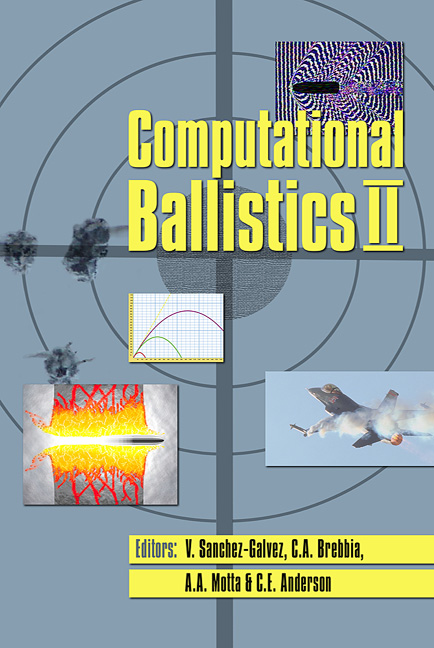Simulation Of A Ballistic Impact Of A Deformable Bullet Upon A Multilayer Fabric Package
Price
Free (open access)
Transaction
Volume
40
Pages
11
Published
2005
Size
833 kb
Paper DOI
10.2495/CBAL050051
Copyright
WIT Press
Author(s)
R. Barauskas, A. Abraitiene & A. Vilkauskas
Abstract
A finite element model of the shooting test against the paraaramyde Twaron multi-layer textiles package structure has been developed in LSDYNA. The bullet has been considered a deformable body in contact with the fabric package presented by interwoven yarn structure. The simplification of the model has been achieved by presenting the multifilament yarns by thin shell elements, the thickness of which represents the real thickness of yarns as it can be measured in the weave. The zones of the fabric remote from the point of impact have been presented as a roughly meshed uniform thin shell model. The junction between the two types of zones of the fabric has been performed by means of the tie constraint and by proper adjustment of material parameters ensuring the same speeds of the wave propagation in the interwoven yarn structure and in the uniform shell. Physical and numerical experiments have been performed in order to identify the material model parameters. Keywords: high-velocity impact, multi-layer fabric, finite elements, LSDYNA. 1 Introduction The clothes ensuring the ballistic protection have to be designed in a way that their ballistic strength exceeds many times the rates intended in regulating standards and ensures the necessary protection level. For the estimation of the ballistic safety the worldwide spread USA standard NIJ 01.01.03 is employed. The results obtained during the investigation of multi-layer textile packages designated for bullet-resistant vests at the Lithuanian textile institute [1] imply that the protection level is defined by the following basic factors:
Keywords
high-velocity impact, multi-layer fabric, finite elements, LSDYNA.




